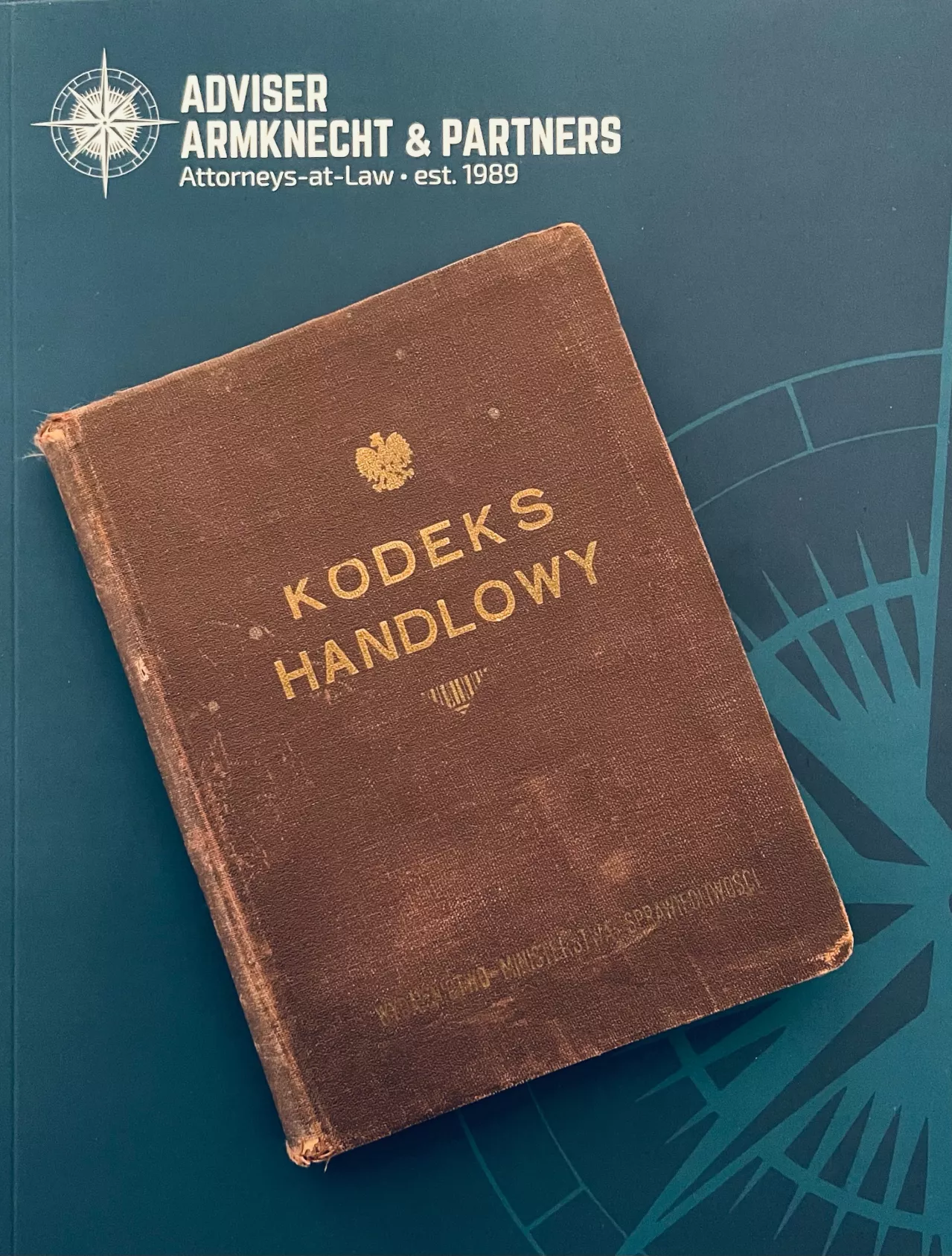
Potocznie adres i siedzibą to synonimy, jednak w języku prawnym to dwa różne pojęcia. Zmiana adresu i siedziby czasem wymaga podjęcia różnych czynności.
Czytaj dalej
 Wstecz
Wstecz 
W dniu 15 września 2023 r., weszła w życie nowelizacja Kodeksu spółek handlowych (k.s.h.), której głównym założeniem jest implementacja Dyrektywy Parlamentu Europejskiego i Rady (UE) 2019/2121 z dnia 27 listopada 2019 r. zmieniającej dyrektywę (UE) 2017/1132 w odniesieniu do transgranicznego przekształcania, łączenia i podziału spółek oraz wykonanie wyroku Trybunału Sprawiedliwości Unii Europejskiej w sprawie C-106/16 Polbud Wykonawstwo. Ponadto Dodatkowo, nowelizacja obejmuje częściową implementację Dyrektywy Parlamentu Europejskiego i Rady (UE) 2019/1151 z dnia 20 czerwca 2019 r. zmieniającej dyrektywę 2017/1132 w odniesieniu do stosowania narzędzi i procesów cyfrowych w prawie spółek.

Nowelizacja Kodeksu spółek handlowych (k.s.h.),obejmuje zmiany w dotyczące:

Zmiany regulacji Kodeksu spółek handlowych, przewidują wprowadzenie ustawowej regulacji transgranicznego podziału i przekształceń spółek kapitałowych oraz spółki komandytowo-akcyjnej, niejako uzupełniając dotychczasową regulację obok w przedmiocie transgranicznego łączenia spółek.
Transgraniczny podział obejmować będzie całościowe albo częściowe przeniesienie majątku polskiej spółki, która podlega podziałowi na spółkę nowo zawiązaną, która ma siedzibę w innym państwie z Europejskiego Obszaru Gospodarczego (EOG).
Natomiast transgraniczne przekształcenie będzie obejmować przekształcenie polskiej spółki (spółkę przekształcaną) w spółkę przekształconą z siedzibą w innym państwie Europejskiego Obszaru Gospodarczego (EOG). W tym kontekście w celu bezpieczeństwa obrotu prawnego, przewidziano szersze badanie przez sąd rejestrowy gospodarczego uzasadnienie a podejmowanej reorganizacji transgranicznej. Wyjaśnienia w tym przedmiocie sąd rejestrowy będzie dokonywał w terminie 3 miesięcy od dnia złożenia wniosku o wydanie zaświadczenia o zgodności z prawem transgranicznej reorganizacji. PrNowa procedura będzie wiażać się z dodatkowym obowiązkiem, w postaci złożenia wniosku do Dyrektora Krajowej Administracji Skarbowej (KAS) o wydanie opinii m.in. w przedmiocie unikania opodatkowania, czy nadużycia prawa przez transgraniczną reorganizację podmiotu.
Zmiany dotyczące podziału spółek handlowych obejmują dopuszczenie podziału w obrocie krajowym oraz transgranicznym na terytorium EOG, spółki poprzez wyodrębnienie jako nowego typu podziału. (również krajowego). Podział spółki handlowej poprzez wyodrębnienie, będzie obejmował przeniesienie części majątku spółki dzielonej na już istniejącą lub nowo zawiązaną spółkę handlową w zamian za objęcie przez spółkę dzieloną udziałów lub akcji w tej spółce. Zaznaczyć należy, ze udziały albo akcje objęte w spółce w wyniku podziału obejmie spółka dzielona, a nie jak ma to miejsce w przypadku podziału przez wydzielenie wspólnicy albo akcjonariusze spółki dzielonej.
Z punktu widzenia obrotu podział spółki handlowej poprzez wyodrębnienie będzie stanowił alternatywę dla wniesienia wkładu przez spółkę dzieloną do innej spółki handlowej. Przeniesienie majątku spółki dzielonej będzie następowało w drodze sukcesji uniwersalnej, co wiąże się z przeniesieniem praw i obowiązków, co niesie za sobą zarówno ryzyka jak i pewne korzyści, chociażby uproszczenie dokonywanie podziału w odniesieniu do dokonywania cesji zobowiązań.
Dodatkowo nowe regulacje Kodeksu spółek handlowych, przewidują szersze stosowanie uproszczonych procedur reorganizacji podmiotów handlowych. Dotyczy to w szczególności sytuacji, gdy jeden wspólnik posiada bezpośrednio lub pośrednio wszystkie udziały lub akcje w łączących się spółkach albo, gdy wspólnicy łączących się spółek posiadają udziały lub akcje w tym samym stosunku we wszystkich łączących się spółkach handlowych.

Zmiany przepisów Kodeksu spółek handlowych wynikające z wykonania wyroku Trybunału Sprawiedliwości Unii Europejskiej w sprawie C-106/16 Polbud Wykonawstwo, związane są przede wszystkim z ustanowioną w art. 49 TFUE zasadą swobody przedsiębiorczości i obejmują zapewnienie spółkom prawa handlowego możliwości przeniesienia siedziby spółki z jednego państwa członkowskiego UE do innego państwa na terenie UE, bez przeprowadzenia likwidacji spółki. Dodatkowo, celem nowelizacji jest również częściowa implementacja Dyrektywy Parlamentu Europejskiego i Rady (UE) 2019/1151 z dnia 20 czerwca 2019 r. zmieniającej dyrektywę 2017/1132 w odniesieniu do stosowania narzędzi i procesów cyfrowych w prawie spółek.

Nowe regulacje Kodeksy spółek handlowych weszły w życie z dniem 15 września 2023 r. Natomiast do trwających już procesów łączenia, w tym łączenia transgranicznego, a także podziału albo przekształcenia spółek prawa handlowego, w przypadku, gdy przed dnie, 15 września 2023 r. do właściwego sądu rejestrowego został złożony plan reorganizacji, to wówczas stosuje się przepisy dotychczasowe.
On September 15, 2023, an amendment to the Commercial Companies Code (CCC) entered into force, the main assumption of which is the implementation of Directive (EU) 2019/2121 of the European Parliament and of the Council of November 27, 2019 amending Directive (EU) 2017/1132 in relation to cross-border transformation, merger and division of companies and the implementation of the judgment of the Court of Justice of the European Union in case C-106/16 Polbud Executive. In addition, the amendment covers the partial implementation of Directive (EU) 2019/1151 of the European Parliament and of the Council of 20 June 2019 amending Directive 2017/1132 as regards the use of digital tools and processes in company law.


Potocznie adres i siedzibą to synonimy, jednak w języku prawnym to dwa różne pojęcia. Zmiana adresu i siedziby czasem wymaga podjęcia różnych czynności.
Czytaj dalej
W związku z obecną sytuacją polityczną, w celu ułatwienia dostępu do informacji prawnej, poniżej przedstawiamy najważniejsze akty prawne obowiązujące w stosunkach prawnych pomiędzy Polską a Ukrainą. Zachęcamy również do zapoznania się z publikacją pokonferencyjną Bartosza Armknechta poświęconą kwestiom prawa spadkowego w stosunkach polsko-ukraińskich. Międzynarodowa Konferencja z okazji 25 rocznicy Konstytucji Ukrainy, pt. Konstytucja – Podstawa Rozwoju Państwa i Społeczeństwa, została zorganizowana przez Sąd Konstytucyjny Ukrainy oraz Narodową Akademię Nauk Ukrainy w Kijowie w dniu 24 czerwca 2021 r. (КОНСТИТУЦІЯ — ОСНОВА РОЗВИТКУ ДЕРЖАВИ І СУСПІЛЬСТВА. До 25-річчя Конституції України, Київ, 24 червня 2021 р.).
Czytaj dalej